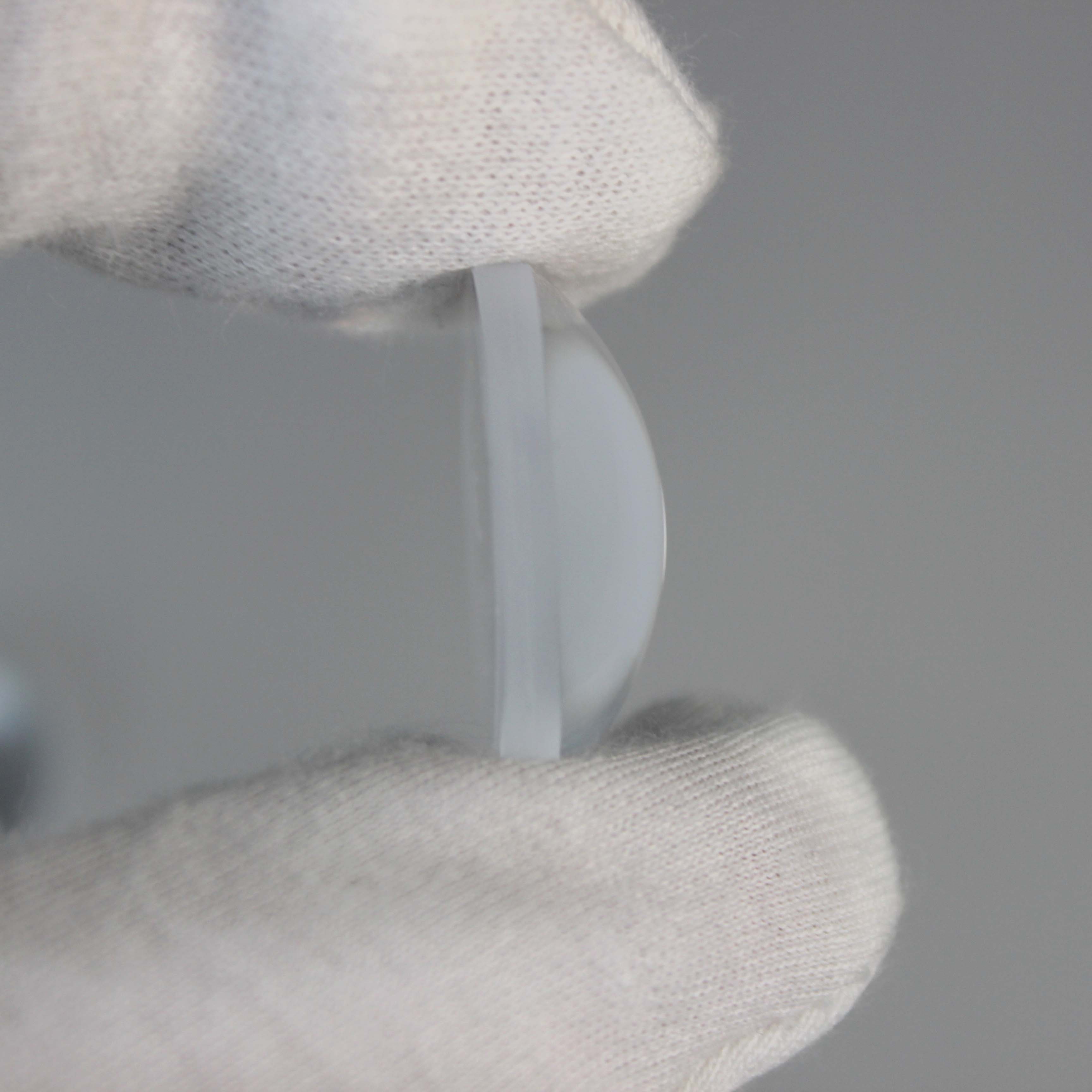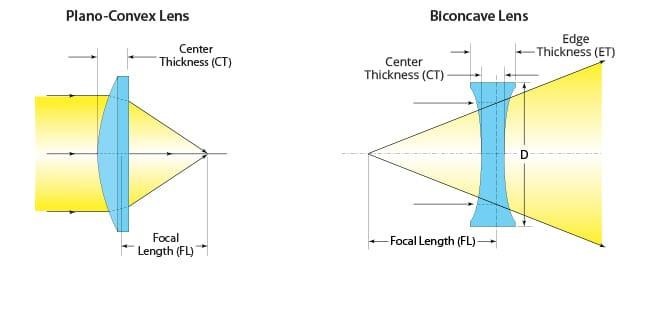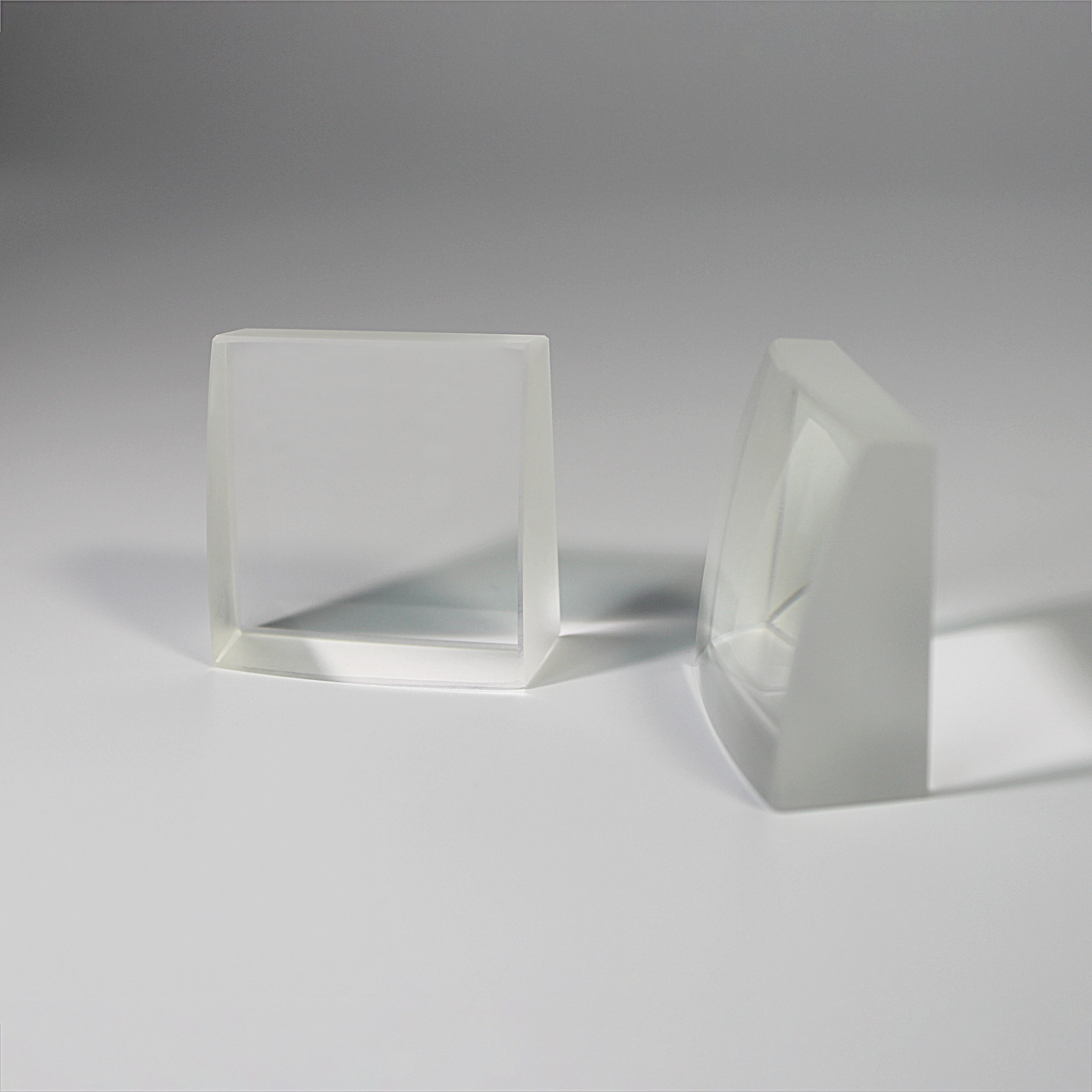Coated Glass Spherical Optical Laser High Precision Spherical Singlet Lens Aspheric Lens












Coated Glass Spherical Optical Laser High Precision Spherical Singlet Lens Aspheric Lens
Item Number:X-P22D2T5102
Spherical lenses are lenses with at least one curved surface. They converge or scatter light, change the path of light and affect the wavefront curvature of light.It is widely used in medical imaging, laser optics, security monitoring, automotive industry, military industry, aerospace and other high-tech fields.They are important optical elements to improve the signal coupling between optical fiber, transmitter and detector.VY Optoelectronics Co., Ltd. produces high-precision spherical lenses in the plano convex, plano concave, double convex, double concave and meniscus.
- Material: K9, PMMA, Sapphire, Quartz, etc.
- Dimension: 1-150mm
- Surface Accuracy: 60/40 or better
- Size Tolerance: +/- 0.1mm
- Coating: Optional
What is a optical plano convex lens?
Plano-convex lens is positive focal length elements that have one spherical surface and one flat surface. These lenses are designed for infinite conjugate (parallel light) use or simple imaging in non-critical applications. These optic lenses are ideal for all-purpose focusing elements. PCX Lenses have one convex surface. For maximum efficiency, the second, plano (flat) surface should face the desired focal plane.
How optical convex lens work?
Plano-convex lenses are used for applying focus to an optical system, and collimating diverging light beams. ... Low spherical aberration is obtained if the lens is orientated in a way that causes the collimated beam to enter or exit the curved surface, thereby making the plano side face towards the point source or focus.

Plano-Convex lenses Application
Plano-Convex Lens usually for light collimation or for focusing applications utilizing monochromatic illumination, in a range of industries including industrial, pharmaceutical, robotics, or defense etc..
Product image of VY Glass Plano Convex Spherical lens
Video of VY Optical Glass Spherical Lenses
Specificaitons of this Cutting Lens
| Specificaitons | Data |
| Material | Fused silica |
| Diameter | 25mm |
| Center thickness | 8.5mm |
| Edge thickness | 2.51mm |
| Tolerance | ±0.1mm |
Production workshop of VY Optoelectronics Co.,Ltd.
Optical spherical lens provided by VY Optoelectronics Co.,Ltd.
VY Optoelectronics Co.,Ltd. offers large inventory of off-the-shelf optical components, which includes a large variety of Plano-Convex Lenses. VY Optics’PCX lenses are available in a range of coating or substrate options. Anti-reflection coatings range from the Ultraviolet (UV) to the Infrared (IR), including UV-AR, UV-VIS, MgF2, VIS 0°, VIS-NIR, NIR I, NIR II, or Telecom-NIR. Additional coatings designed specifically for laser wavelengths, such as 266nm, 355nm, 532nm, or 1064nm are also offered. Germanium (Ge), Silicon (Si), or Zinc Selenide (ZnSe) substrates are ideal for Infrared (IR) applications.
VY Optics can also manufactures Plano-convex lenses according to you specication, material has wide range, from S1-UV Grade Fused Silica, G1 Fused Quartz, Commercial Grade, and BK7 Optical Glass. Every optic is pitch polished, providing good surface quality and an exceptional low-cost imaging performance with a variety of light sources.
We also offer plano-concave lenses, which have negative focal length components and one concave surface. For information on our optic lens custom work, contact VY immediately.
People Also Ask
- What is the magnification formula for lenses?
Magnification formula for lenses. Let's explore the magnification formula (M= v/u) for lenses and see how to find the image height and its nature (whether it's real or virtual). Created by Mahesh Shenoy.
- What is the difference between spherical and non spherical lenses?
Spherical or aspherical denotes the profile of a lens. Spheric lenses use a single curve in their profile, whilst aspheric lenses use varying curves. These varying curves make your lenses thinner and generally flatter which makes them look nicer and prevents your eyes being magnified.
- Which is better cylindrical or spherical lens?
Cylinder corrects astigmatism. If you have only a small amount of astigmatism, then a lens using the “spherical equivalent” may correct your vision adequately. If you have a lot of astigmatism, using only a spherical equivalent lens will result in a compromise in visual acuity.
Want to learn more / get a quote? Just click here to contact us now~ 
Related Products

Optical K9 Quartz Sapphire Glass Plano Convex Spherical Lens with Coating
Spherical lenses are lenses with at least one curved surface. They converge ...

Customized Optical Glass Lens Silicon Mirror Spherical Plano Convex Lens
Spherical lenses are lenses with at least one curved surface. They converge ...




